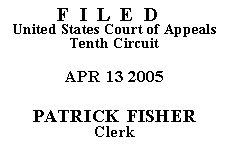

| UNITED STATES OF AMERICA, |
|
| v. | |
| JESUS FALLS, |
Nothing in the statutes or rules governing the proceedings of the Courts of Appeals authorizes those courts to recall their mandates, but the Supreme Court has held they have such "inherent" authority. Calderon v. Thompson, 523 U.S. 538, 549 (1998). The Court has cautioned, however, that "the power can be exercised only in extraordinary circumstances." Id. at 550. "The sparing use of the power demonstrates it is one of last resort, to be held in reserve against grave, unforeseen, contingencies." Id.
Mr. Falls points to prior decisions of this Court recalling the mandate, but those decisions are easily distinguishable. In Gomez v. New Mexico, 937 F.2d 616 (10th Cir. 1991) (table), 1991 WL 132445, this Court issued its mandate on June 27, 1991, remanding to the district court for further proceedings. On June 24, 1991, however, the United States Supreme Court handed down a decision inconsistent with this Court's ruling, and indicated that the decision should be applied retroactively. The appellee filed a motion to recall the mandate "several days later," on July 3, 1991. The court granted that motion, explaining that "[t]o hold otherwise would be to engage in an exercise in futility, requiring the district court to apply a legal analysis which has now been repudiated by the Supreme Court." Id. at 1. This case is different in three ways: (1) the supervening Supreme Court decision(s) came down after the mandate had issued; (2) the lapse of time between the mandate and the motion to recall in this case is almost a year, as opposed to "several days"; and (3) this case would not entail a district court proceeding pursuant to an erroneous legal analysis. The other cases cited by Mr. Falls are even farther afield.
It may be unfortunate, but it is not "grave," "unforeseen," or "extraordinary," that the Supreme Court renders decisions that are inconsistent with prior final decisions of the lower courts. The proper avenue for reconsideration, in cases involving continuing confinement, is via habeas. Whether relief is available via habeas depends, in part, on whether the Supreme Court's supervening rulings are intended to apply retroactively. We have no occasion to decide, in this case, whether collateral relief is available on a Booker claim. In United States v. Price, -- F.3d --, 2005 WL 535361, (10th Cir., Mar. 8, 2005), at 5, this Court has held that "Blakely does not apply retroactively to convictions that were already final at the time the Court decided Blakely, June 24, 2004."
The motion to recall this court's March 29, 2004 mandate is DENIED.
Entered for the Court,
PATRICK FISHER, Clerk
*.This order is not binding precedent, except under the doctrines of law of the case, res judicata, and collateral estoppel.